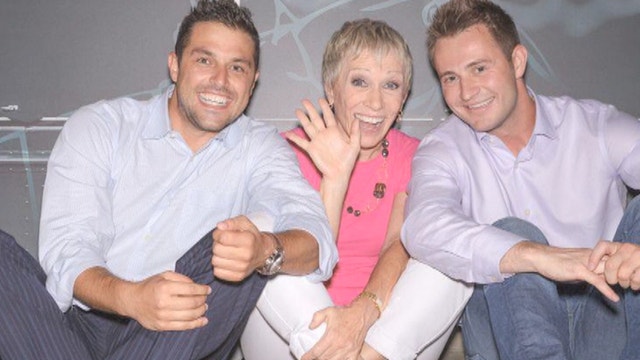From Food Truck to (Barbara Corcoran) Overnight Fame
When Sabin Lomac and Jim Tselikis went on ABC’s hit show “Shark Tank,” they really had nothing to lose. Perhaps that’s why investor extraordinaire Barbara Corcoran decided to take a chance on them.
“We were really comfortable with our current jobs, and didn’t need investors,” Lomac, 32, said. “We needed mentorship, contacts and growth.”
In other words, they were just the opposite of most of the entrepreneurs who appear on the show, begging for cash to get their business off the ground.
The duo grew up together in Maine, but parted ways as Lomac moved out to California for a career in real estate and Tselikis traveled to Boston for a job with a medical devices company. In 2012, they decided to open Cousins Maine Lobster, a food truck that transplanted the fresh Maine lobster they grew up on out to the West Coast.
They certainly got their mentorship and growth—Corcoran invested $55,000 for a 15% stake in the company, which has since expanded to a second food truck an online marketplace that ships anywhere in the U.S., and a brick and mortar restaurant in Pasadena. But, they still haven’t touched the cash Corcoran gave them, because they “haven’t had to yet.”
Their growth over the past year has been extremely fast-paced, Tselikis, 27, said, but the cousins are up for the challenge.
“It doesn’t scare us at all,” he said. “It’s exciting. We are trying to really perfect it, and dial it in. Barbara has provided us with advice and insight, and we are workaholics. When someone presents us with something, we go 90 miles-an-hour one way towards it.”
Their truck drove into business in L.A. at just the right time in 2012, as the food truck industry was exploding in California. Some days, their truck has a line of 50-to-70 customers waiting for their famous lobster, and the cousins said they still try to work on their mobile restaurant every day, alongside the company’s 50 employees.
After making their rounds on T.V., the little lobster business that could did $250,000 in sales in just one day, they said.
“We went 100% into this, and were working 18-to-20-hour days,” Tselikis said. “We didn’t expect this [growth]—we thought we would just be an average business.”
But seeing the opportunities in front of them, the cousins are looking to capitalize strategically.
“Our mentality in opening this truck wasn’t to make millions, or to retire,” Lomac said. “We just thought it was a cool idea. But now, we want Cousins to be what you think of when you think of lobster, just like Omaha is what you think of when you think of steaks.”
A potential cookbook is in the works, and the founders say franchising may be in their future.
“The growth is a challenge, and it’s exciting,” Tselikis said. “But we’re not saying yes to everything.”
And with Corcoran watching over them, it’s unlikely these “Shark Tank” survivors will be eaten alive anytime soon.




















